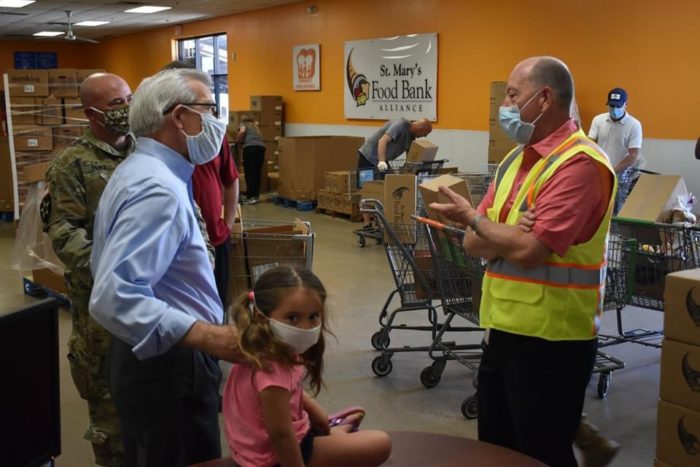Speculative Fiction And Contemporary Culture, Part 2
When I wrote the post last Monday about Speculative Fiction And Contemporary Culture, I had no intention of making a multi-part article. Until I read a line from The Emotional Craft of Fiction, by Donald Maass.
Well, “line” is not the right term. One section of the book is entitled “Stirring Higher Emotions.” In it, Maass does say, “Why not create characters that inspire us to a high degree?” (p 42) Meaning, why not create characters that we would greatly admire if they were real people—characters that are willing to risk their reputation or their position of power or their wealth for a selfless purpose.
I think, for example of Bobby Green Jr., Lei Yuille, Titus Murphy, and Terri Barnett, the four residents of South Central Los Angeles, who came to the aid of Reginald Denny, a truck driver who was pulled out of his rig during the Rodney King riot, and severely beaten. Those four men risked everything, including their very lives, to rescue Denny—a stranger, a man of a different race—and get him to a hospital. They were contemporary “Good Samaritans.”
Are admirable characters like that in our stories?
Or how about eighteen-year-old Brandt Jean, who forgave the very person who had shot and killed his older brother in his own apartment?
Donald Maass draws on something Thomas Jefferson wrote back in 1771 in a recommendation to a friend to include works of fiction in his library:
He said this because “everything is useful which contributes to fix us in the principles and practice of virtue. When any . . . act of charity or of gratitude, for instance, is presented either to our sight or imagination, we are deep impressed with its beauty and feel a strong desire in ourselves of doing charitable and grateful acts also.” In other words, virtuous acts by fictional characters inspire us to be virtuous, too. (p 43)
Perhaps we don’t include characters of high virtue in our fiction because we suspect we can’t make them believable. After all, our culture has been shaped by the revenge mentality of “Go ahead, make my day” from the 1983 Clint Eastwood movie, Sudden Impact. There was a hero who wasn’t about forgiving or rescuing a perceived enemy.
Following on it’s heels, the 1984 Arnold Schwarzenegger movie, The Terminator famously used the line “I’ll be back,” before a scene of violence and carnage. Nothing about repentance or forgiveness. Just a might-makes-right, hate-them-they-are-your-enemies type of movie.
And this is the hero we see over and over.
In our divided culture, with cancel culture nipping at the heals of free speech, are virtuous heroes believable?
They can be, if we write them with proper motivation. So perhaps the question is, do we want to write virtuous characters? Because, in truth, virtue may not be admired by everyone. Not all the comments, for example, to the video of Brandt Jean are positive. Some are outright critical.
 So, undoubtedly, the sacrifice or forgiveness of a character might actually bring some negative reaction. But if we want to have an impact on culture through our speculative fiction, I think standing for virtue rather than simply playing along with “heroes” who are ordinary and not extraordinary, will have a greater impact.
So, undoubtedly, the sacrifice or forgiveness of a character might actually bring some negative reaction. But if we want to have an impact on culture through our speculative fiction, I think standing for virtue rather than simply playing along with “heroes” who are ordinary and not extraordinary, will have a greater impact.
From Maass again: More recently, Dr. Jonathan Haidt and others have scientifically demonstrated that fiction can have an effect called moral elevation, which affirms that reading about good people causes us to be better ourselves. We make better choices when character inspire us to do so.
So how can writers speak into today’s troubled culture, whether dealing with the political divide, racial unrest, dealing with a pandemic, economic concerns, or what have you? One way has nothing to do with re-creating a similar problem in our fictitious world, but rather, creating a virtuous hero who makes hard, selfless choices that can inspire readers to go and do likewise.









































Stories can definitely influence society for both good and bad. But over emphasizing that actually fuels a lot of aspects of cancel culture. People in that group saw many instances where media influenced culture both positively and negatively. From there they try to ensure media does everything right and nothing wrong. Many of the more intense cancelers feel like it’s an emergency or at least a step backward whenever something slips by them, because they are afraid of the influence that something can have.
What people need to realize is that, although stories certainly can influence behavior, teaching people how to act isn’t fiction’s only job. In fact, it often shouldn’t be a DIRECT influence on our behavior. If we constantly search for characters that look ‘good’ so we can copy their behavior, we’re setting ourselves up for failure. Just because a character seems good doesn’t mean they always make the right decisions, even within their story world. But even if the character did everything right, actually copying his behavior and translating it to real life might be difficult. Just because we think we’re emulating something doesn’t mean we’re doing a good job of it. And real life requires discretion. Behaviors that work in one situation often won’t work in another.
Stories are really there for a lot of things. At their core, they present a situation for our consideration. Maybe that situation illustrates aspects of human nature, or shows a moral quandary. Then we’re supposed to feel entertained while we think through it. Why did the characters make those choices? What would I have done in their shoes? What could they have done to make the situation better? How could I have solved that same problem? What if they… Etc.
Those stories can still help us learn and become better people even when they don’t contain notable heroes. Watching characters interact helps us understand ourselves and other people better. So from that standpoint…I’m all for learning positive lessons from stories, but it can be a little dangerous(or at least less effective) to assume that a story’s intrinsic purpose is to present role models.
Stories can be so much more; like cautionary tales, or simply interesting word pictures that give us ideas to chew on. When we don’t realize that, a lot of communication breaks down and causes people to attack each other. Mainly because nearly every story, character, or person can be accused of having an immoral idea or affect. That’s going to be very threatening to anyone that holds too closely to the idea that characters should be role models.
Well, there’s this lady who was treating some anti-BLM protester who’d gotten shot, but got pushed away by cops. The dude ended up dying, and she seems to have medic’s guilt about not being able to save him. She seems like a good person.
https://www.dailymail.co.uk/news/article-8682399/amp/Portland-SWAT-team-kicked-volunteer-medics-aid-kit-away-dying-Patriot-Prayer-member.html
Seems like there aren’t a lot of character arcs anymore either. Not believable ones.
Jean Valjean from Les Miserables. Raskolnikov from Crime and Punishment.
And the CBA literature I recall was at least as bad as the secular in this respect. (Think 80’s, 90’s, 00’s.)
Oh, oh, Mumen Rider from One Punch Man. You think he’s just a joke on Kamen Rider, with a bicycle instead of a motorcycle, but he’s actually a mensch who tries to keep up with hardcore villains on top of maintaining his status as #1 C-class hero by keeping weekly quotas for small-time stuff.
Mumen Rider is best hero, and that’s even though he’s not particularly funny in a spoof superhero show.
Great article! Now I’ll have to go back and read part 1.
Btw, I haven’t seen Terminator in several years, but as I remember it Arnold was hardly the hero. The heroes were the young man from the future who risks, and ends up losing, his life to keep the Terminator from changing the past, and the woman who trusts and helps him, and, later in the franchise, raises their child to be a hero in the future.
This has become the focus of my writing. I feel called to share how strong believers would handle being asked to walk a path of seemingly insane obedience. In my heroic fantasy series in another world, The Ferellonian King, a young boy is prophetically told (shortly after a radical rebirth experience) that he will be king though he is a nobody with no connections. Or in the case of my newest WIP, What if God called a young man first to surrender it all to Jesus, and then to deliver a modern American city from demonic forces behind protesters who are being duped by these forces who are preparing the way to bring in the antichrist? It focuses on realistic spiritual warfare in both cases. I have found in my nearly fifty years of walking with the Lord, that the Lord does amazing things for true believers willing to obey no matter what the cost or how foolish it may appear. I’m labeling the WIP: heroic urban fantasy. For real spiritual warfare has become fantasy for most of the church. I tell you, it has been a fun, inspiring ride so far.
Right on Rebecca! God bless the influence of your characters!